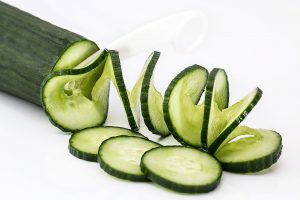Surviving Low Calorie
It may be good for your health to lose weight if you are overweight or obese but getting the motivation to stick to a low calorie or very low calorie diet can be hard, especially if you are having to deal with hunger, which can be a problem for the first 3 days. The benefits can seem a long way off, while that piece of confectionery or extra dessert is immediate and may be right in front of you.
Sometimes, we sabotage our own diet but other people can also cause problems for us, possibly jealous of our success in losing weight or through pity at seeing us struggle when we so obviously would love a cookie! Some people who do not need to lose weight do not seem to realize that “just one won’t hurt” or “a little bit won’t make any difference” makes it very hard for you to resist, especially when you would love to have some, or even a lot. They also do not realize that having that extra piece of food or a forbidden food can trigger cravings that will be even more difficult to overcome tomorrow.
There are also those who believe they are telling us to stop dieting for our own good. In some cases that may be true. A person with anorexia or who is below the ideal weight for their age, gender and height should not be on a weight loss diet. But others seem to believe that weight loss is bad altogether. They may have their own reasons for saying this or even believing it, including the fear that they themselves may need to follow a similar way of eating or because they have been fed misinformation or misunderstood something they heard.
So here are tips for overcoming the problems and staying on your low calorie diet.
1. Ditch the NaySayers
If you are having difficulties with someone trying to sabotage your weight loss diet, then ditch them, at least for a little while. The 8 week 800BSD is only for 8 weeks. If someone is trying to stop you from improving your health by losing weight with a recognized way of healthy eating, then they are not thinking of your health and you need to avoid them for a while or at least when you are feeling particularly vulnerable.
OK, it’s not always possible to ditch them, so if not, try to avoid conversations about food or diet or weight loss. If they say something like “you’re looking so thin!”, then remind them that you are not yet at your healthy target weight or that you still weigh more than you did when you both first met and that you were not exactly skinny then! They have a picture in their mind of you as being an overweight person. They need to adjust their picture of you to being one of a person at their ideal target weight. That will take them time.
It’s especially hard if the person who appears to be sabotaging your efforts is your nearest and dearest or your parent, who cooks your evening meal every day. They presumably have your best interests at heart but they also have their own interests to serve, even if they don’t acknowledge that. They may be proud of their cooking and feel hurt and rejected if you don’t eat it or not as much as previously. Try to get them on your side, so they are more concerned about your health than about their own cooking prowess. Try to get them to serve more salads and green vegetables and fewer potatoes or less pasta, bread and rice. Even if they are playing the guilt game “you don’t like my cooking any more”, try NOT to play them back, “you don’t care about my health”, but instead, let them know how thankful you are that they care about your health and that they take the trouble to make you a meal, which is much appreciated. Once they realize that their time and effort are appreciated, they may be more willing to make changes that can help.
2. Overcome Hunger
There are some foods you can eat without having to count them in your daily allowance. I have found fresh celery very useful. It’s only about 30 calories for 2 large stalks and that is very filling as well as providing useful fiber. You can cut up some stalks of celery and keep them in the fridge when you just have to nibble. Cucumber is another useful vegetable. I buy a whole one and cut off a chunk every so often. I don’t count those in my daily allowance. Occasionally, I buy a single red chili pepper and cut it up along with the celery, to give it a bit of “bite” but I try to make the chili pieces last at least 2 days.
Sugar free chewing gum is another way of overcoming hunger. It doesn’t provide (many) calories but it gives your mouth something to do and overcomes mouth boredom which is sometimes translated as being “hungry”. Be careful with this though, if you are not used to it. Many of the types available contain phenyalanine which some people must stay away from and most of them can have a laxative effect, which may or may not be helpful to you.
Eat plenty of green veg or green salads with your meal. Spinach, green beans, cabbage and broccoli (and cauliflower, though it is not green) will all fill you up and provide more fiber, without many calories, as will lettuce, cucumber and other salady green stuff.
If you find you have eaten fewer calories than your daily allowance, make sure you have something quick and reasonable available so you are not tempted by cookies or candy. A small can of tuna has about 100 or 120 calories. A spoonful of mayonnaise has 100 calories, so you can make a quick snack of tuna and mayo to eat with a fork to keep you well fed and with no excuse for eating what you have chosen not to.
3. Renew Your Motivation
If you have a favorite book or article that prompted you to get started on your weight loss journey, keep a copy of it nearby and read it again, to remind yourself of why you wanted to lose weight. Fear; and feelings of doom if you don’t lose weight may not be the best motivators but they may be what you need in order to stick to your diet at times.
Get advice from your doctor. They may already have been trying to get you to lose weight. Some can be very helpful, though many were never trained in nutrition. If not, find a doctor with whom you CAN work and who will support you on your journey.
4. Work out your REASONS for losing weight
- Do you want to get a beach body for a special holiday?
- Maybe you want to get new clothing for an event, such as a wedding?
- Maybe you have had a diagnosis of diabetes, high blood pressure or high cholesterol and want to improve your situation?
Reminding yourself of your reasons and what you will get at the end of your diet will help you stick to it.
5. Record It
Keep a journal or a vision board. Write down your reasons for losing weight and find pictures that will show you how you want to look in 6 weeks or 6 months’ time. Maybe one of you at an earlier age or someone who looks similar to what you want to look like. Keep a record of what you DON’T eat when you are tempted and give yourself a reward for that. Even a check mark in a list can keep you going. You could always give yourself a small monetary reward for 10 check marks and save it towards something special, maybe new clothes or a special outing.
Keeping a record of what you DO eat can also be motivating. The very fact of having to record it, may help you avoid eating something on the no no list.
Keep a record of meals you CAN eat and enjoy and a record of calorie counts in case you are worried about going over your allowance or can add something extra in.
